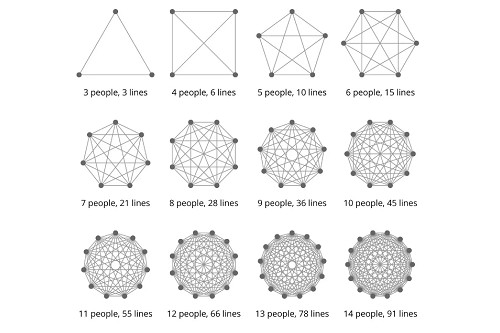One of marketing’s most critical tentpoles is timing, and there are four character traits people (and businesses) should possess that can help foster good timing in marketing. You should know which of the four are your strengths and weaknesses, and then understand how each is impacting your marketing success.
Why? Because in marketing, you should play to your strengths. And if you want to execute the kind of marketing campaigns that aren’t a good match for your weaknesses, you’re going to waste time and money…guaranteed.
Do a little soul searching about yourself and your company’s traits and behaviors to see where you stand on these four essential character traits:
1. The Decisiveness to Act Quickly
For some marketing concepts, especially those tied to a trend or current events, you need to act NOW. The power of social media only heightens this urgency. Your window for success may only be 24 hours, and even launching something just two days later will fall flat and yield you zero ROI.
A fabulous recent example of this comes from startup coffee company Cometeer. When investment bank Goldman Sachs announced it was ending the free cold brew perk previously offered in its NYC HQ, Cometeer had a free coffee table set up right outside of the bank’s building just 16 hours after the announcement was made. Here’s how they made it happen. Had they done it even just a week later, the news value would have been too low to make it worthy of notice. It HAD to be linked in time to the announcement that the cold brew perk was being discontinued.
Tip: What if this is your weakness? Steer clear of marketing concepts and campaigns that will be a complete failure without tight, precision timing. You may want to do them oh-so-badly, but you’ll just be frustrated that they didn’t work as well for you as they did for other companies you envy. Years ago, on the day American Airlines announced it would now charge a $25 fee for checked baggage (an industry first at the time), we put our client Loews Hotels in the media spotlight by announcing ON THE SAME DAY that Loews would give a $25 credit to all incoming guests who flew American and checked a bag. That Loews Baggage Buy Back Program was in the New York Times, The Wall Street Journal, USA Today, and more the moment we pitched it. Media wanted to share it in conjunction with news about the American Airlines fee. Had we pitched it a week later, the airline fee story would have been old news, and no one would have cared.
At the time, we had another hotel brand client who saw what we did for Loews and said, “we want an idea like that for us!” And it’s just not that simple. That was a client who took four weeks just to approve a simple weekend package press release. They would never be able to turn around such operational decisions across dozens of hotels (and approve the pitch copy) quickly enough to catch the news wave. So we’d be doing them a huge disservice and wasting their money if we forced them to try. A business that can’t make decisions quickly has more success with marketing concepts that have a nice long runway and lots of wiggle room for timing bottlenecks.
2. The Willpower to Wait
OK so maybe you’re awesome at making decisions and acting quickly, but sometimes good timing requires that you have the willpower to wait. Jumping the gun – before the facts are in, before the campaign is REALLY ready, before details are agreed – can not only tank your marketing ROI, but it can also cause you real harm. A few examples we’ve seen in our time as marketing and PR counselors:
- A government official at a destination wouldn’t wait for talking points following a violent hate crime against a tourist. Instead, he insisted on speaking with the press immediately and gave his opinion on the situation without knowing the facts. Turns out, the facts belied his opinion in a BIG way, and the destination suffered immeasurably for it…not to mention the fact that they had to pay us a fortune in crisis management fees for damage control.
- I can’t even count the number of times a hotel has pushed us (against our advice, I promise) to launch a package – through PR or an email blast or social post – BEFORE they’ve got all the details finalized on the website and BEFORE they’ve shared it with their reservation and front desk agents. They want to “get it out there and start selling,” but they don’t seem to get how much this harms them. When consumers want more information (or to book) and can’t make it happen, they get frustrated. So not only does the hotel NOT get the sale, now they’ve pissed people off.
- I also recall a colleague being traumatized by the fact that she was “forced” to announce a huge brand partnership in the media and on social channels before the contract was finalized. The owners were trying to secure more hotel management deals and felt it would be a huge feather in their cap to have that cool partnership announced as they were engaging in other negotiations. When the partnership fell through before the deal even got signed, the harm to their image – and their business – was excessive under the circumstances. They earned an unwelcome gold medal in backpedaling, for sure.
Tip: What if this is your weakness? This one’s tough, because it’s psychological and personality driven. You need to be aware that it’s in your nature and admit to yourself that your impulsiveness can do your marketing great harm. In this case, you need to surround yourself with cool-headed sounding boards who can objectively rein you in when you’re about to go rogue. And then – sorry if this is super blunt, but I say it for your own good – you need the humility to listen to them.
3. The Resistance to Complicate Things
Lack of this resistance is definitely the most common weakness we see (when it comes to marketing), and often goes hand in hand with not being able to act decisively or quickly.
The more complicated you make something – too many goals for a single campaign, too many decision makers, too many layers in a concept – the harder it will be to nail successful timing. For some reason, it’s an incredibly common human trait to overcomplicate things. Part of it is time and resource poverty. Our resources are so precious that we try to force them to serve many masters at once.
But a HUGE part of it in the business world is the (often misguided) need to get multiple people involved in various projects and decisions. If I had a nickel for every time we were ready to launch a campaign for a client, and at the eleventh hour someone said “hey, let’s get Jeff’s opinion on this before we flip the switch.” Inevitably, Jeff has something to add that derails the timeline and – I’m sorry to say – is most often not helpful. But we made Jeff happy by looping him in so… Politics 1; Marketing Success 0.
There’s a principle called Brooks’ Law that was originally created to address communication challenges among software project teams. But it really applies to ANY type of team working and making decisions together, like a marketing team and its extended family (executives, operations, etc.). Visually, it shows lines of communication necessary for various team sizes, like this:

In associations, governments, and large companies, it’s not unusual to find a committee of 10 or more involved in projects and decisions. Do you see how complicated those visuals are? That’s an accurate reflection of the logistics required to get consensus. So it shouldn’t be a surprise that these types of organizations find it hard to achieve perfect timing…it’s just too darned complicated.
Tip: What if this is your weakness? There’s no easy fix for this one, other than to say steer clear of marketing concepts that require tight timing or “drop dead precision launch dates.” You may not be able to capitalize on current events or hot news topics, but you CAN give yourself a lengthy runway to get ducks in a row long before an important event will take place. See how we did this for the four provinces of Atlantic Canada, making a social media splash the moment the Canadian border opened during the pandemic.
4. The Discipline to Stay Abreast of the News
Marketing needs to sit well within the context of what’s going on in the world. Being oblivious to current events can have unfortunate timing consequences, from ill-timed insensitivities to launching a product/service you claim is “a first”…when it’s been done before.
A recent, cringeworthy example of this is when the television show Canada’s Drag Race tweeted “This crown is up for grabs” on the day Queen Elizabeth II died. Obviously, they meant the drag race crown, but ugh… the tweet was pummeled with criticism and had to be deleted. This is a helpful lesson that pre-scheduling social posts can be a useful tool, but unless you stay abreast of the news, it could backfire.
Redpoint nearly fell prey to this once with our popular tourism marketing newsletter Tickled Red. For the March 1, 2022 issue, the subject line was supposed to be “Bubblegum and Tombstones in Tourism.” Tombstones referred to the brilliant concept of Ben & Jerry’s Flavor Graveyard… but the issue’s timing was just after the war in Ukraine started and casualties were piling up. The newsletter draft was written before the war started, but we pulled that story (and the subject line) the day before it was scheduled to send. It was not the right time to be celebrating tombstones of any kind.
Tip: What if this is your weakness? If you’re not someone who immerses themselves in news every day, and you don’t have a marketing agency at your disposal to help stay abreast of news, here’s a quick fix for one-off marketing plans. Just before you’re about to launch something, hop on a social channel like Twitter or LinkedIn and see what news is trending. Also, do a search online for keywords related to your campaign or concept. A quick Google search will likely reveal anything glaring that may conflict with your plans. And then either make your changes accordingly…or have the willpower to wait (see #2 above).
If you’re scheduling social posts in advance, however, then it’s super risky for you to NOT stay abreast of the news. So if it’s not in your nature to keep up with current events, it’s best to just change your habits: either stop scheduling posts or start checking the news often.
Folks, the bottom line is…no one is perfect. You and/or your company may claim some of these character traits as weaknesses and there’s no shame in that. But you’ll have more success and achieve a greater ROI in marketing if you choose concepts that play to your strengths instead. It will make timing your friend and not your enemy. Reflect on these four character traits to see how well (or not) you foster good timing in marketing.
Want more tips on how to get the most out of marketing? Check out these 20 tips we assembled from our 20 years of experience as tourism marketing counselors.
 get travel marketing tips
get travel marketing tips 




